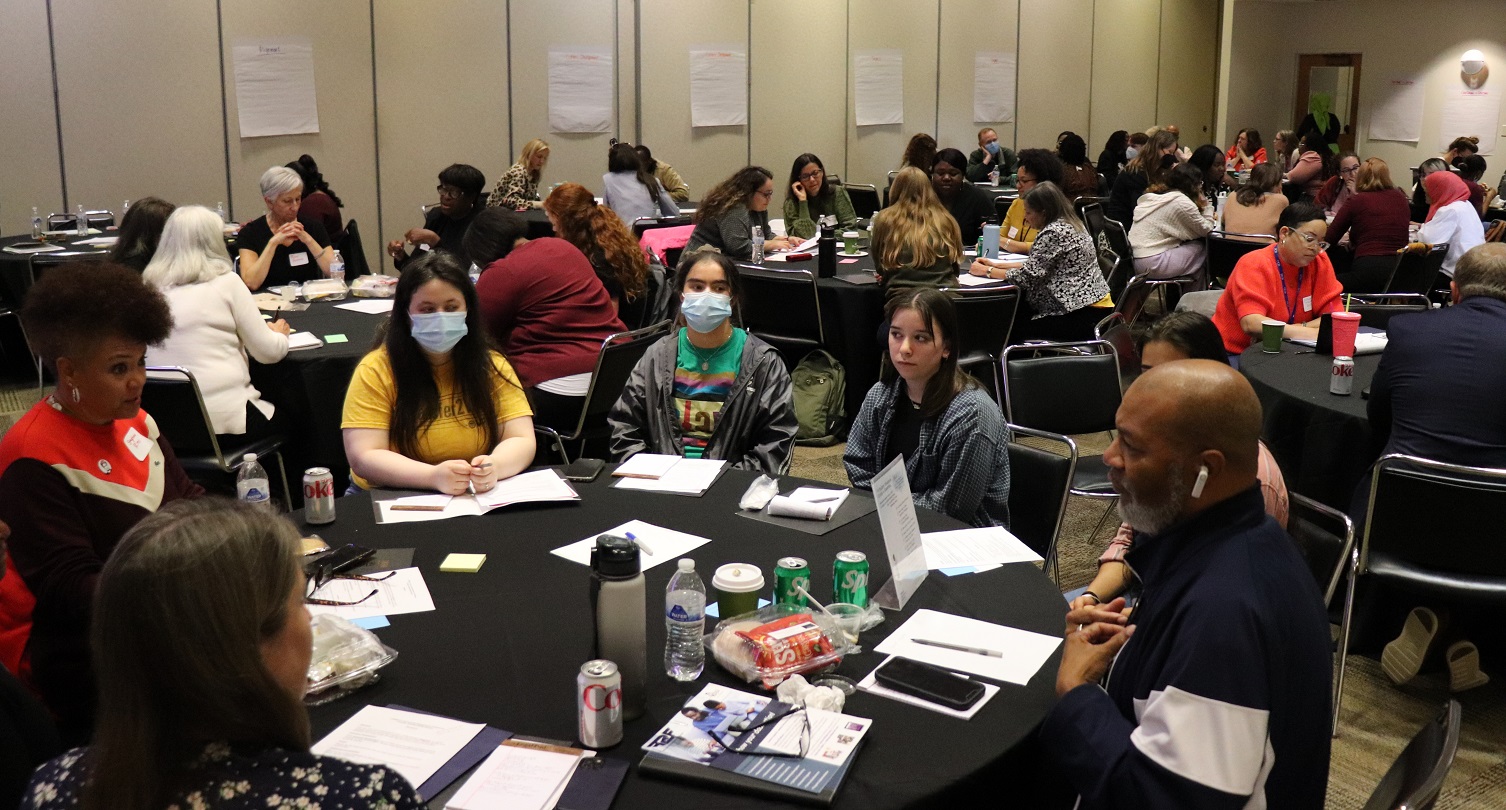“Connect”conference spotlights community partnerships and engagement skills
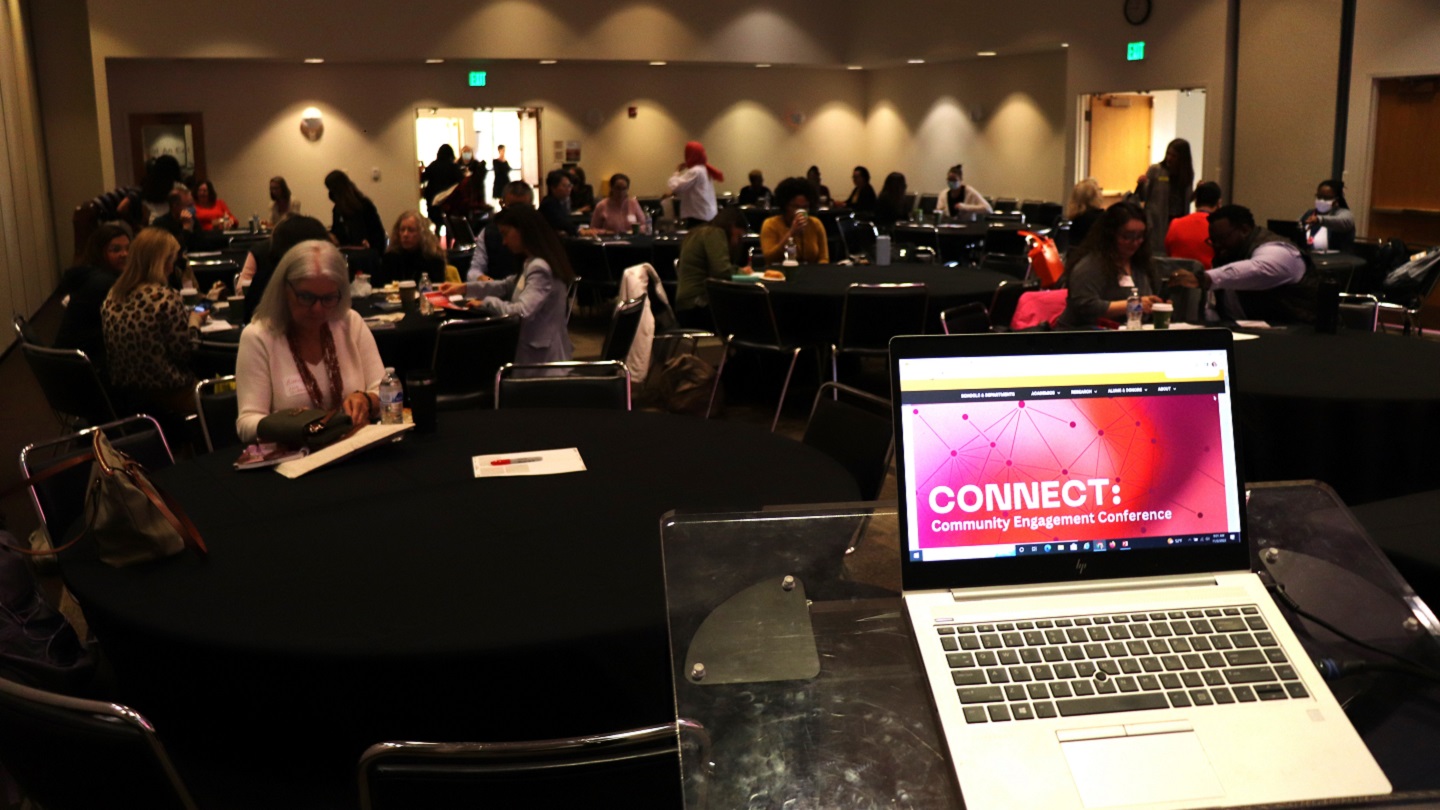
Faculty, staff and community members gather to network, learn principles and meet new VCU Community Engagement team
In her keynote address at the Connect: Community Engagement Conference, Maghboeba Mosavel, Ph.D. said that everything she learned about community engagement and community outreach, she learned growing up in apartheid South Africa.
“It is a very diverse country with people who have diverse views. But the masses decided that racism was unacceptable,” said Dr. Mosavel. “I learned that when you have a clear agenda you can move things, that we can put our differences aside when we have a shared agenda.”
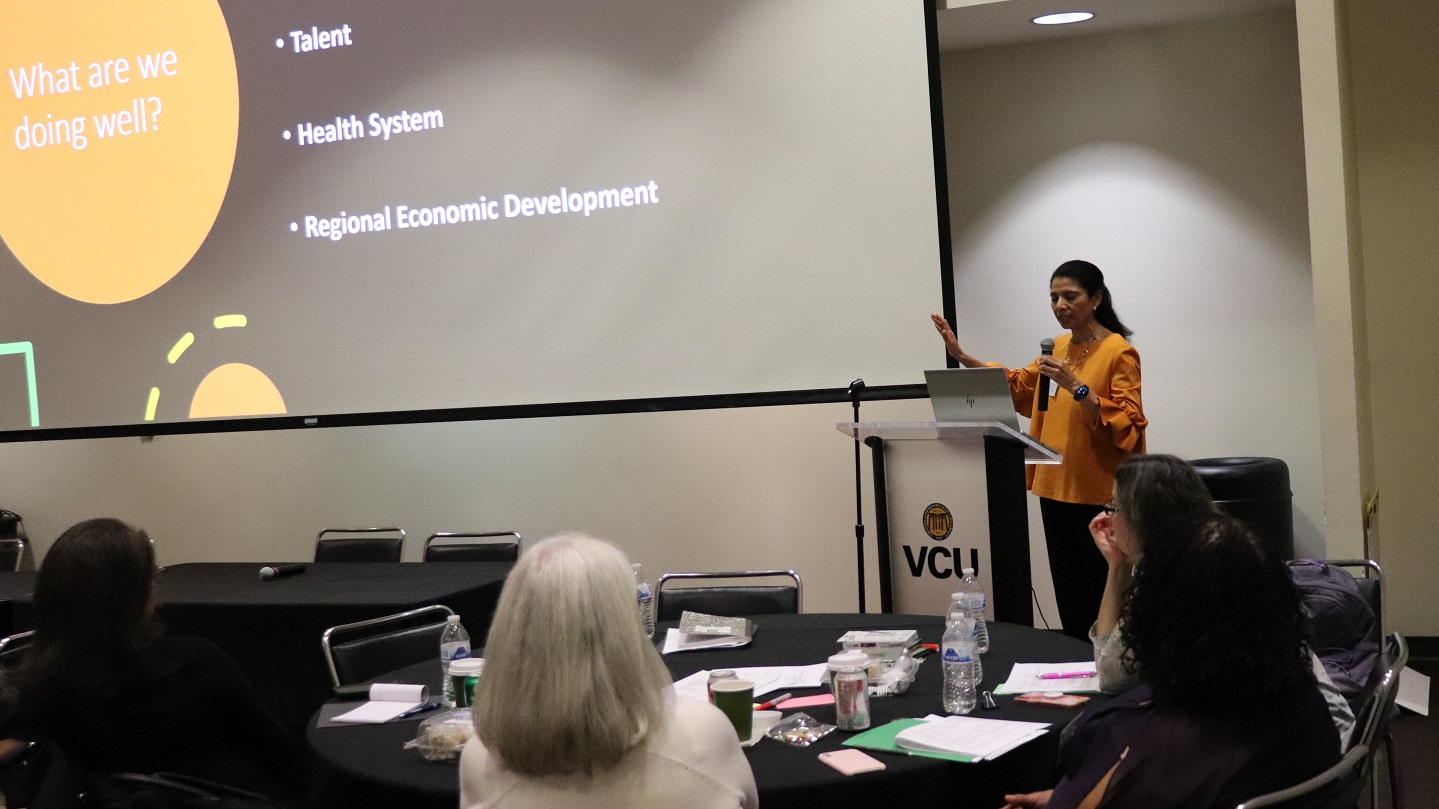
Mosavel outlined VCU’s agenda for community engagement to the more than 100 faculty, staff, and community members in attendance at the conference, an agenda she will manage as the Associate Vice President for Community Partnerships in VCU’s Office of Institutional Equity, Effectiveness and Success (IES).
The Connect conference was a joint effort organized by the VCU College of Humanities and Sciences and IES, held on Wednesday, Nov. 2nd at the University Student Commons. It represents a return to regular community engagement events that allow networking between community members and VCU personnel that had been difficult to assemble during the height of the pandemic.
“This conference is a place to strengthen existing relationships and build new ones with the goal of creating new partnerships, align the work already in process and increase our impact,” said Shari Garmise, VCU’s executive director for collective urban and regional impact in a pre-conference interview.
We want to go beyond engagement. We really want to make sure that our engagement leads to action and benefit.
Maghboeba Mosavel, Ph.D., associate vice president of community partnerships at VCU
Christine Peterson, a member of the Richmond Public Library Board, attended the conference to explore opportunities for expanding ongoing partnerships with VCU. “Three years ago, we partnered with the VCU Common Book program to promote the book ‘Evicted’ to our patrons,” Peterson explained. “We had many special events, a bunch of community talks, it was the beginning of a great, great collaboration. We are always looking to stand next to VCU in the community. If we work in silos, we accomplish a little but together we can move mountains.”
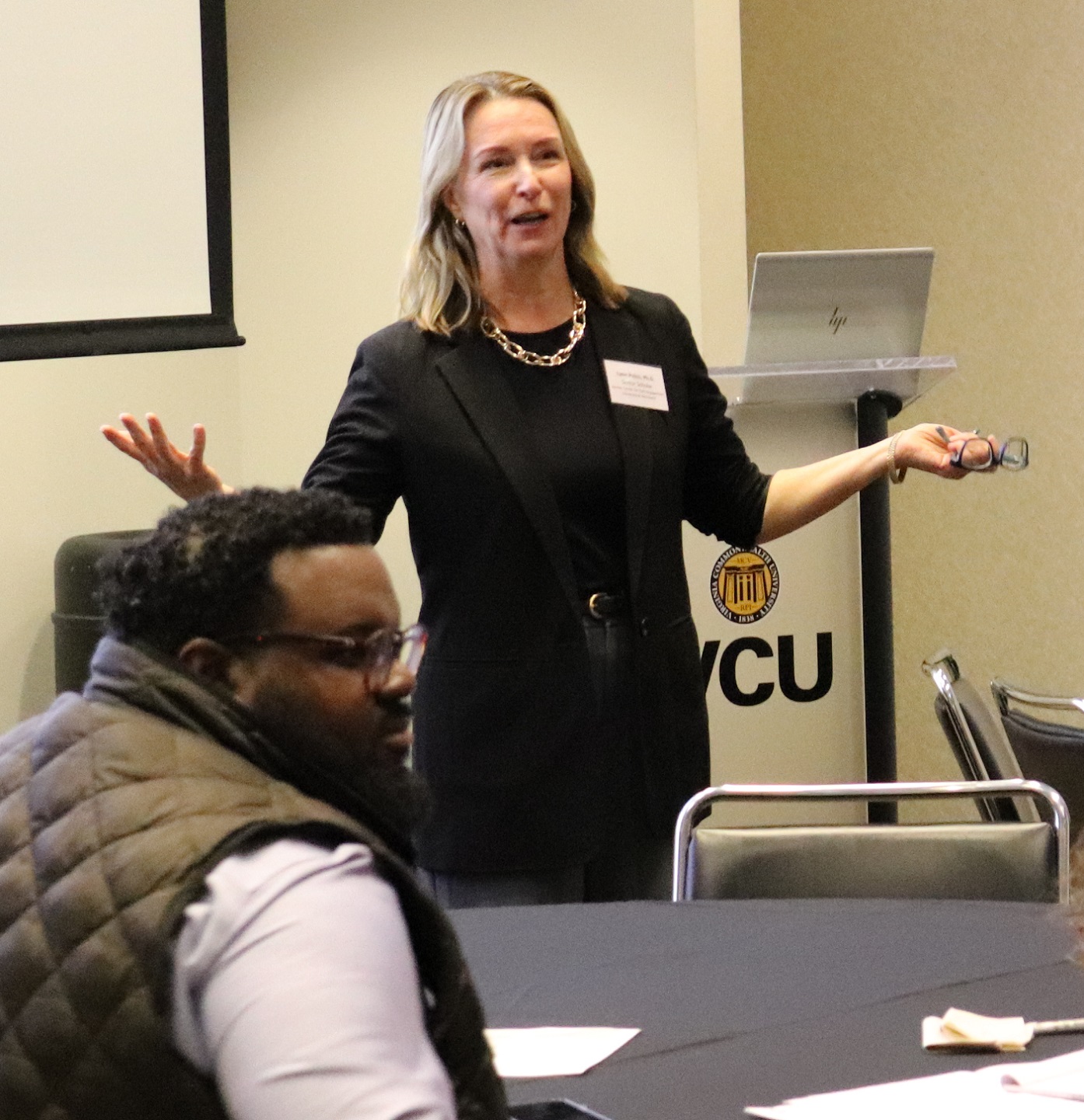
The conference kicked off with a morning keynote address from Lynn Pelco, Ph.D., a senior scholar at the Bonner Center for Civic Engagement at the University of Richmond and a professor emerita at VCU, where she served as the associate vice provost for community engagement from 2012 to 2021.
Her presentation on “The Principles of Community Engagement” outlined key concepts for building ethical, sustainable and successful partnerships, including reciprocity and mutual benefit. “These are foundational concepts but the basics are complicated,” Dr. Pelco explained.
“It’s important to have some space to reflect on the principles in authentic ways. It can seem pretty straightforward, but it’s important to hear from community partners who can give an on-the-ground view of what the principles look like in practice. That’s a critical component of a day like this,” said Pelco.
Community partners provided their perspectives on several panels throughout the afternoon. Partners included Erin Brown, Ph.D., representing Richmond Public Schools; Nikishia Nunn, from the Richmond Health District; and Tanya Gonzalez, the executive director of Sacred Heart Center.
“Tackling complex multifaceted issues in our community is best done through collaborative, equitable partnerships built on trust and reciprocity,” said Gonzalez. “At Sacred Heart Center, we value our many partnerships with VCU, and hope to continue deepening our work together. Especially now, as the pandemic continues to impact our community, revisiting what community engagement means and should look like, via this important conference, is critical.”
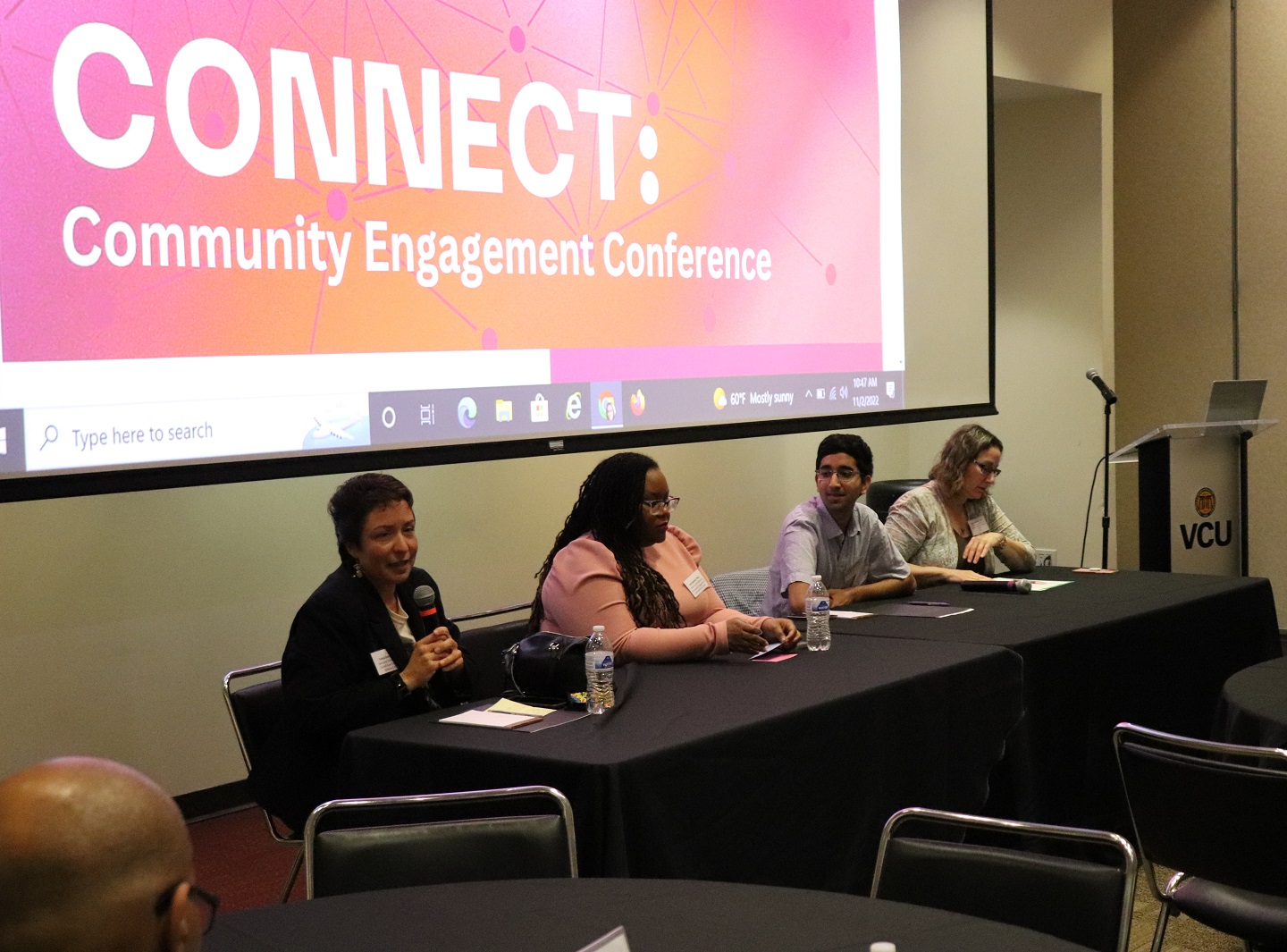
Pelco reinforced the importance of bridging gaps that might have developed over the past couple of years. “There is a lot of experience here,” she said. “So it’s key to bring in new generations of people to learn from each other and from the people who have been doing it a long time. The experienced people can be reinvigorated, as well. They share ideas and network in a way we haven’t been able to do during the pandemic.”
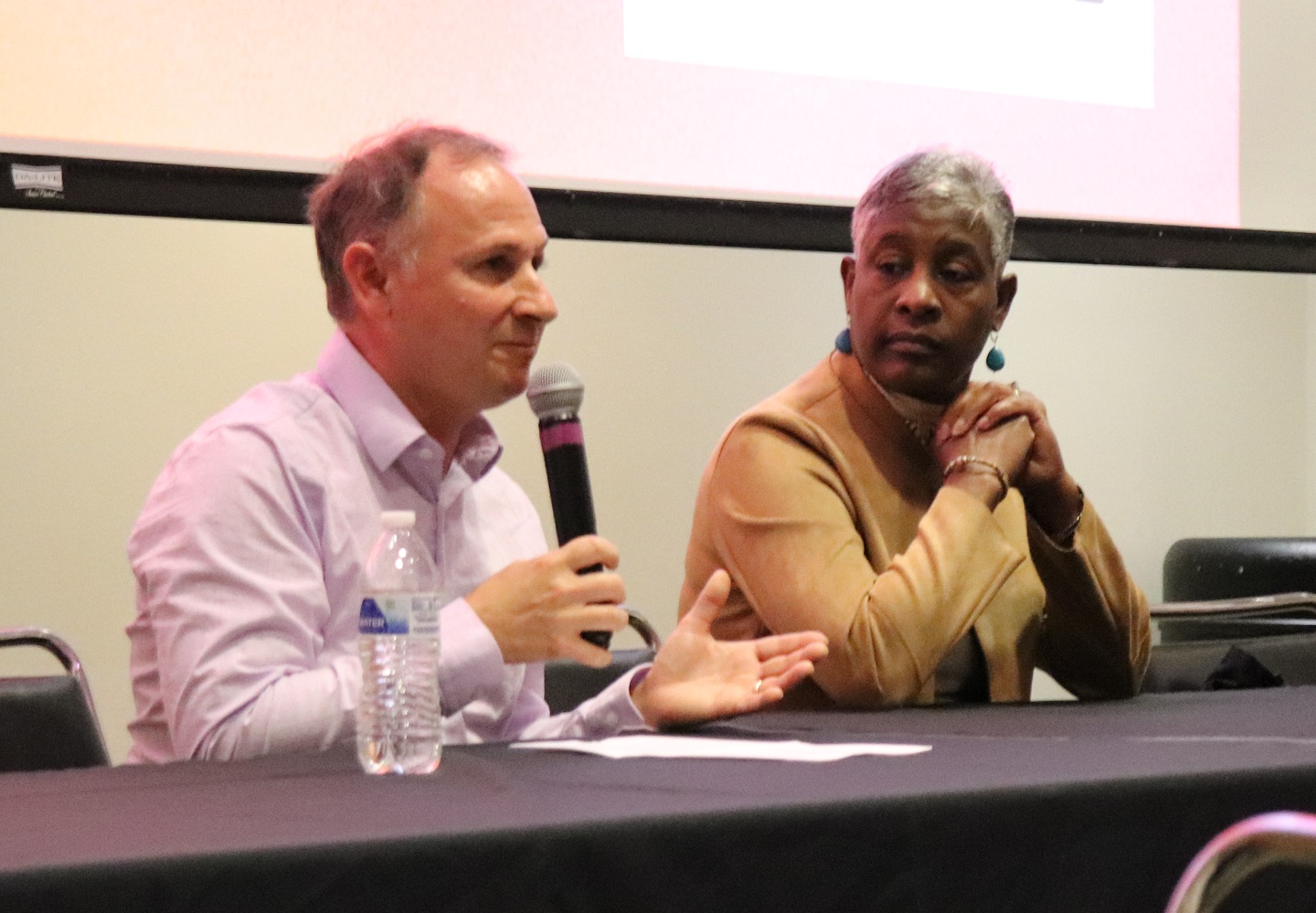
Mosavel acknowledged that big institutions like VCU can have problems meeting community members where they are. “We work in communities but the problem is we don’t always listen,” she explained. “Being in a community doesn’t mean that you’re working with that community. Oftentimes we don’t even know about other VCU faculty and programs that are already working in those communities.”
The introduction of the new Quest 2028 strategic plan provides exciting opportunities for expanding and improving VCU’s community engagement work, said Mosavel. “We want to go beyond engagement,” she said. “We really want to make sure that our engagement leads to action and benefit.”
